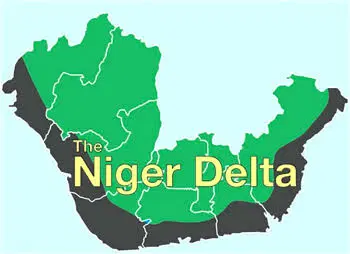The Shehu Musa Yar’Adua Foundation (SMYF) has urged the federal government to prioritize the needs and interests of the Niger Delta people in Nigeria’s Energy Transition Plan (ETP). This call was made during a stakeholder roundtable event in Uyo, Akwa Ibom State, focused on ensuring an inclusive energy transition for the region.
Mr. Amara Nwankpa, the Foundation’s Director for Partnerships and Development, highlighted the critical importance of addressing the concerns of communities most affected by the shift from fossil fuels to renewable energy. He lamented that the ongoing energy transition planning had not adequately engaged these communities, which are essential for capturing their challenges and needs.
“Nigeria’s Energy Transition Plan must take into account the needs of the Niger Delta region, which is directly impacted. Adequate engagement with these communities is essential, yet this has not been sufficiently done,” Nwankpa stated. He emphasized that understanding the energy challenges faced by these communities is crucial for ensuring a fair and equitable transition.
Nwankpa further cautioned that as the global shift toward renewable energy accelerates, the Niger Delta could suffer significant adverse effects if its specific energy needs are not addressed.
Mr. Nnimmo Bassey, Director of the Health of Mother Earth Foundation (HOMEF), also spoke at the event, emphasizing the necessity of energy transition in addressing Nigeria’s power challenges. He advocated for the development of community-based power systems that are clean, efficient, and independent of the national grid.
“Many of our communities are still not connected to the national grid, and the world is moving away from centralized energy systems. We need power solutions tailored to meet the specific needs of communities, managed by the communities themselves,” Bassey remarked. He expressed concern over the frequent collapses of Nigeria’s national grid, highlighting its inability to sustain the current power generation of under 4,000 megawatts.
“The frequent collapse of the national grid is troubling. If the current capacity cannot be sustained, how will the system cope with more electricity? This is why community-based power solutions are vital,” he added.
Bassey concluded by stressing the need for comprehensive reforms across Nigeria’s economic, political, and cultural systems, noting that energy transition alone would not resolve the country’s multifaceted challenges. “We need changes across the board, not just in energy, but in our economic, political, and cultural systems as well,” he said.

